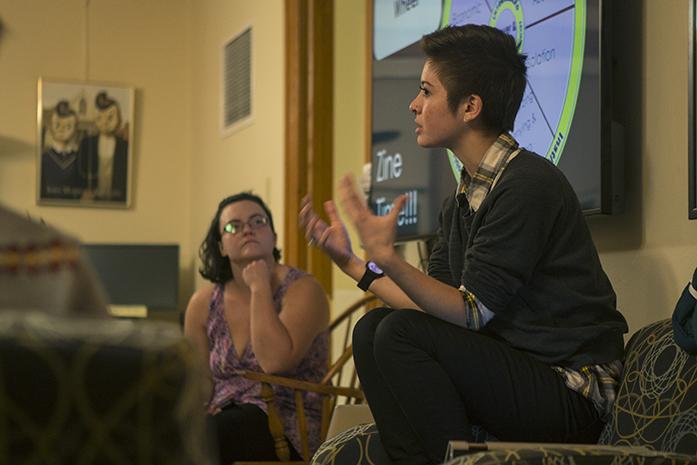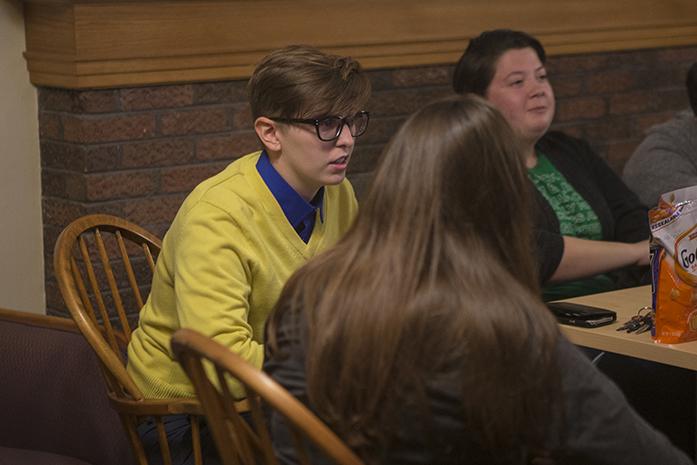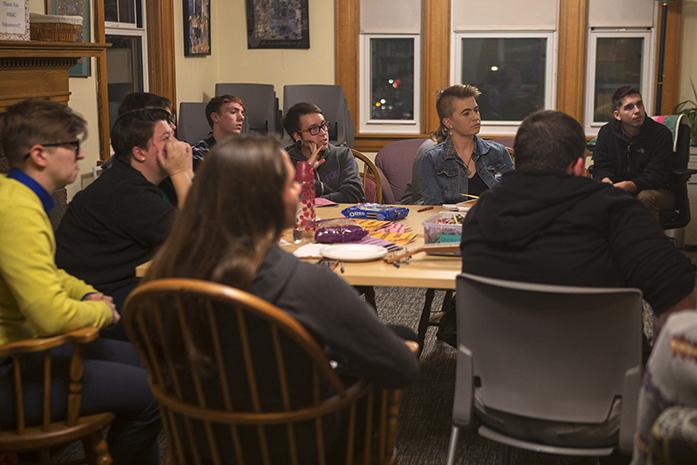By Brett Shaw
Discussions on the different types of relationships and domestic-violence prevention were brought to light in a safe space Thursday evening.
Numerous students and community members attended the first-ever “Relationship Remix: Queer Relationships” event at the Women’s Resource and Action Center.
This workshop primarily focused on what healthy queer relationships look like. A queer relationship is an encompassing term of many genders and relationship types, such as LGBTQ-identifying couples, non-monogamous partners, and kink.
The workshop was created through the collaborative efforts of the Rape Victim Advocacy Program, the Domestic Violence Intervention Program, Transformative Healing, and WRAC. Topics included patterns of unhealthy behavior, boundary setting, and components of healthy relationships.
While sitting around on the sofas of the center and eating snacks, those who attended listened to the workshop presentation and discussed their thoughts and experiences with queer relationships.
Kimmie Andresen-Reed, the mobile advocacy specialist at Transformative Healing, said she wanted attendees of the workshop to be able to be affirmed and have space that acknowledges different relationship styles and queer relationships.
Throughout the workshop, people in attendance participated in various activities that encouraged discussion. One of these activities was completing a zine.
Marissa Gordinier, the campus prevention assistant at RVAP, said zines are really nice to accompany a workshop. They allow people to express what they learn and are tangible items to take home, reminding people of their experience.

A significant portion of the workshop focused on identifying different forms of domestic violence and its causes.
Khirin Carter, the WRAC violence-prevention coordinator, said domestic violence is when a person exercises power and control on another person through physical, sexual, emotional, economic, or psychological abuse.
“I came here to recognize the red flags in society,” said Ashley Lewis, an attendee of the workshop. “It doesn’t have to be just intimate relationships. It can be a friendship.”
RVAP, DVIP, and WRAC have held an original Relationship Remix workshop to educate people on general domestic violence. However, creators of the new workshop wanted to emphasize the discussion of domestic violence specifically for those in queer relationships.
“It is a fact that we have all met someone affected by domestic violence,” Gordinier said. “These conversations do not always include queer relationships or queer identifying people. So opening up the conversation will give space to those who have had their experiences silenced.”
The conclusion of the presentation asked individuals to be a support person for those affected by unhealthy relationship behaviors. However, this must be done keeping in mind the individual’s feelings.

“We believe people are experts in their own life,” Reed-Andresen said. “It’s not your healing process. It’s their healing process.”
The workshop reaches out beyond those involved in unhealthy queer relationships.
“Just being able to broaden our perception of relationships and what they can be is helpful,” Andresen-Reed said.
“I hope that [the workshop] opened up a conversation that is more inclusive, since a lot of conversations about healthy relationships are binary and heteronormative,” Gordinier said. “We wanted to open up what a queer relationship could look like.”



